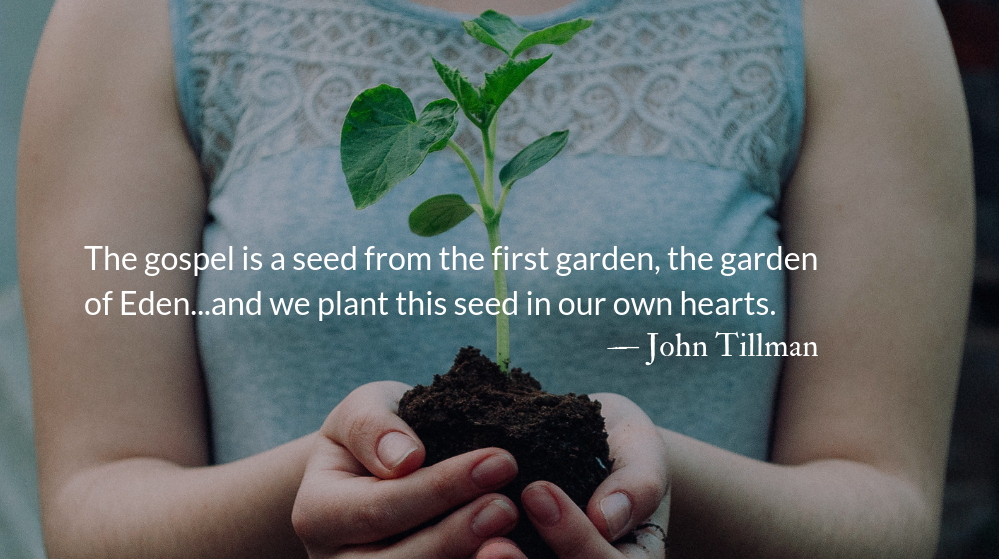Matthew 10.6-7
Go rather to the lost sheep of Israel. As you go, proclaim this message: ‘The kingdom of heaven has come near.’
Reflection: Cultivation Means Tending
By John Tillman
Cultivation begins with destruction, but continues with tenderness and care. On cultivated ground, the soil density, moisture, depth, and chemical balance is carefully controlled. Seeds are planted. Young plants are carefully spaced and precisely watered.
Cultivation creates an environment for growth that is unnatural—that is supernatural. We remove threatening plants. We destroy harmful insects. We take measures to keep out damaging wildlife. We use technology to mitigate weather extremes. When the soil and the environment are ready, we tenderly introduce the seed.
Studying agriculture is fascinating. So many of the plants we eat today, that we think of as “natural” are cultivated. For example, Native American peoples cultivated natural grasses over centuries, creating maize and the corn we know today.
A similar history is found with wine and grapes, with apples, and many other plants. We cultivate, strengthen, protect, and grow the seed. Across the history of the world, peoples have adapted their calendars, lifestyles, and cultures to the needs of their main crop. We care for the seed and the seed changes us.
The seed we care for, and the seed that changes us, is the gospel. The gospel is a seed from the first garden, the garden of Eden. The seed of the woman, Jesus himself, is our salvation and we plant this seed in our own hearts. When we cultivate our faith, we must carefully plant and nurture the early growth of gospel teaching so that it grows strong, healthy, and productive.
This seed changes us more than we change it. We begin by tenderly caring for our young faith, protecting it from difficulties. When it has grown strong, it tenderly protects us, sheltering and supporting us through difficult times and famines of life.
It is for this reason that we work to encourage deepening the roots of our faith through intellectually honest and challenging devotionals and by studying the best writings of ancient and modern Christian thinkers, pastors, and authors.
We must tenderly care for faith as it grows. This is true of our own faith and the faith of others.
Whose faith are you tending? What seeds of the gospel are you planting? How are you adapting the rhythm of your life to tend the seed? How are you creating a supernatural environment around you to prepare the ground for the seed of the gospel?
Prayer: The Request for Presence
Teach me your way, O Lord, and I will walk in your truth; knit my heart to you that I may fear your Name. — Psalm 86:11
– Prayer from The Divine Hours: Prayers for Autumn and Wintertime by Phyllis Tickle.
Prayers from The Divine Hours available online and in print.
Today’s Readings
Genesis 11 (Listen – 3:47)
Matthew 10 (Listen – 5:07)
Additional Reading
Read More about Forging Faith :: Throwback Thursday
This is one of the most difficult teachings of Christianity: you are not yet perfect and must be shaped.
Read More about Resisting in Faith
Daniel lived undefiled, resisted the whims of an evil government, and influenced the course of an empire through simple faith and regular practice of spiritual disciplines.
How far will you travel in God’s Word this year?
On January 1st we restarted our two year Bible reading plan in Genesis and the Gospel of Matthew. Join us on the journey. We read the Old Testament over two years and the New Testament and Psalms each year.
Read with us at a sustainable pace. Subscribe and invite friends to join you using this link.
Where will a journey through the Bible take your faith in the coming year? Jesus calls each of us, saying, “Follow me.”








